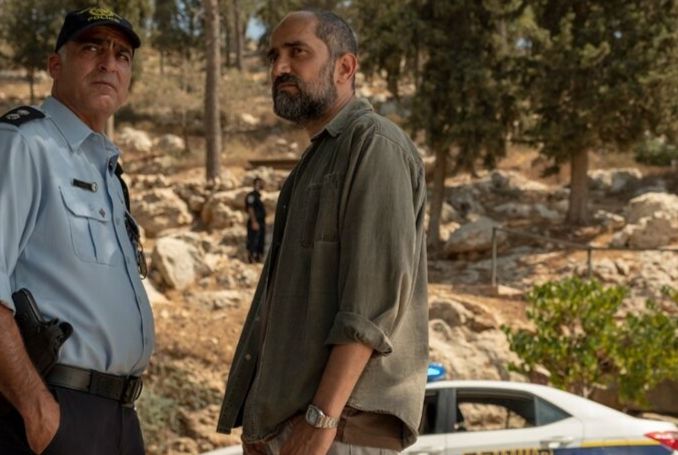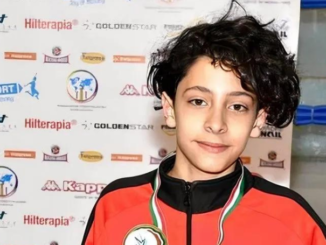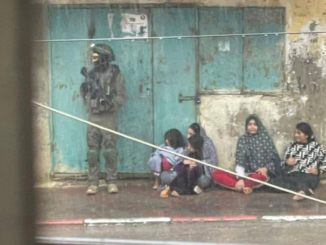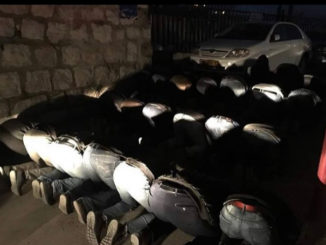
Shot in Israel, HBO’s series “Our Boys” has sparked heated conversations from Zionists and anti-Zionists alike. Controversy over the production extends outside the film itself. Shortly after the early the series’ start, Netanyahu once again claimed Israel as the victim. By calling for a boycott of Keshet studio on the grounds that it “soiled” his country’s “reputation,” the Prime Minister succeeded in attracting even more attention to the show.
Given the outbursts it inspired, “Our Boys” draws interest beyond its coverage of incidents which led up to Israel’s 2014 attack on Gaza. Specifically, the ways in which reviewers perceived the story are as significant as the telling of the story itself.
Debuting August 12, the 10-part series begins with the kidnapping and murder of three Jewish teenagers in the summer of 2014, followed two days later by the burning to death of Palestinian teenager, Muhammad Abu Khdeir, whose body was later found in a nearby forest. Given director Levi’s previous directorial style in “The Affair,” a Showtime series that explores the breakup of marriage from various perspectives, it makes sense that he repeats this form again.
Told from the viewpoints of both Muhammad’s family and the investigator Simon, who works for the Shin Bet, Israel’s internal security agency, Levi’s technique focuses more on internal responses than on what could easily be disturbing graphic visuals.
On the one hand, Levi says that he wants to explore how “Our Boys” is about a particular time and place, but he adds that it is also about how hate crimes are universal in contemporary society. “When I heard about the El Paso shootings, I thought this is so close to what we are doing here,” Levi said. “It’s not really about Israel only.”
On the other hand, is that really what he is doing? Yesterday I attended a protest that targeted Trump’s shock troops—the Proud Boys, the Highway Men, and others—all White Nationalists who gathered in Albuquerque to support the President’s appearance in Rio Rancho on Monday night. If Muhammad’s murder translates to a universal experience, then his assailants should be portrayed as part of a larger fascist movement, as are those who are gathering here to honor Trump.
Muhammad’s murderers are never shown as part of a larger movement, though, fascist or otherwise. The closest that Levi comes to depicting a larger framework comes in his focus on the three Israeli teenagers who are part of an ultra-orthodox community. That population, the film implies, are quite capable of producing such horror. Writing in Mondoweiss, Jonathan Ofir claims, in a similar vein, that by describing the “interconnectedness of religion and nationalism” the series shows how “Jewish fundamentalism can lead to terror.”
While it might be interesting, as Ofir writes, to focus on Jewish terror for a change, it is somewhat misleading to use what Aaron Turgemon called in 2015 “Israel’s ‘blame the hand’ excuse for settler violence.” According to this view, Turgeman explains, it is the settlers who, by engaging in excessive violence, such as the murder of Muhammad, are preventing peace. While these charges have a modicum of truth, he concludes, it is the “head” who controls the hand, and that would be the Israeli government, representing not just settlers but the entire population of Israel.
Writing one year earlier, Turgemon saw the murder of Mohammed Abu Khdeir as perhaps a “tipping point,” a moment when Israelis might wake up to the reality of the Occupation. Nevertheless, he concludes, Israel “now proposes to punish its hand” by singling out “extremist settlers” for harsher blame (though not has harsh as the blame cast on Palestinians).
As evidenced in the series, it is still the settlers who bear the blame, though in a scene early on in the show the camera swipes to masses of Israelis, not just settlers, in the street. Here they are supposedly whipped into a frenzy by what Levi calls incitement:
You have leaders who are doing this. You only need one person to think: If people say: “Death to Arabs!” we have to kill Arabs. Or if people say: “Go back to where you came from!” we have to do something about it. Usually, it’s people who have problems of their own. But if those people meet incitement, this is what happens.
At first, everyone at the Shit Beit refuses to believe that Jewish people are capable of such a crime. When that theory fizzles out after it becomes apparent that indeed three Israeli teenagers are quite possibly capable of burning a child alive, the Israeli investigators create another paradigm. They are now intent on solving the case because in their minds it has become the worst crime in Jewish history.
As Turgemon attests, however, there have been many such crimes in history, including the murder of 29 unarmed Muslim worshippers in Hebron in 1994 by Brooklyn-born settler Baruch Goldstein. Moreover, the Nakba (catastrophe) of 1948 was not a singular event, but is in fact ongoing.
Just as Muhammed’s death goes down as a rare case instigated by settler extremists, so the larger picture is portrayed by reviewers as exceptional. For example, Ben Travers views events covered in the film as part of a “unique dispute still raging” in the world for which there are no “easy answers.” In so doing he employs what Denijal Jegić calls “the liberal Zionist trope of a ‘conflict’ between two parties.”
For decades, continues Jegić, such terms as “conflict” have been used to bypass the Occupation, implying that, instead of a colonizer and colonized, there are two parties who equally bear the blame. “Dispute,” however, as Travers terms it, allows “settler-colonial violence” and “genocidal erasure” of indigenous people to be subsumed into the phrasing of a “diplomatic dispute.”
In 2014, Aaron Turgeman asked if the murder of Mohammed Abu Khdeir might become Israel’s “Rosa Parks Moment,” a tipping point made famous for how it brought to light racism and injustice. “So glaring is the disparity in value that Israel attaches to Jewish versus non-Jewish life,” he concludes, that a “complete collapse of the Zionist narrative is at stake” in the outcome of this single horrific event.
In reality, though, it would seem that this is not yet the case. As the Israeli elections near, Netanyahu once again is seeking political gain for himself by unifying his country through the means of war.
As Ramzy Baroud writes in “The War Ahead,” the Prime Minister’s “elections gamble” will prove “costly for Israel” in a war it cannot win. If Netanyahu carries out this military gamble, not to mention his pledge to annex the Jordan Valley, it remains to be seen how many more Palestinian lives will be lost before reaching the inevitable conclusion: one secular state with equal rights, the right of return, and one law for all.
– Benay Blend received her doctorate in American Studies from the University of New Mexico. Her scholarly works include Douglas Vakoch and Sam Mickey, Eds. (2017), “’Neither Homeland Nor Exile are Words’: ‘Situated Knowledge’ in the Works of Palestinian and Native American Writers”. She contributed this article to The Palestine Chronicle.








